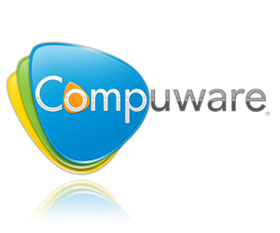2011: the year social went mobile
 The most significant communication trend to emerge in 2011 was mobility, which is beginning to drive major changes in the way the global economy operates.
The most significant communication trend to emerge in 2011 was mobility, which is beginning to drive major changes in the way the global economy operates.
There are other important development emerging that demand attention, however my best bet is it that mobility will remain a dominant force in 2012.
Mobile social media
Social media has been around for years, but 2011 was the year in which it began to re-shape the global economy. The key influencing factor has been the shift to mobile, where we have finally entered the real-time world. No more ducking away to plug in your laptop, or excusing yourself early so you can go home and check your email. Everyone is connected all the time, regardless of location.
The significance of this change cannot be overstated. Just look at Blackberry, a brand that pioneered the always-on lifestyle and yet fell completely foul of its own demanding consumers when it failed to respond to its crisis in real time. Thanks to social media and connected mobility, brands can no longer hide.
Indeed, Blackberry’s recent meltdown proved how just dependent we all are on technology and connectivity. The scale and intensity of the Blackberry consumer backlash shows that connectivity isn’t just about socialising – it’s about life and business.
All of which means that, the multimedia contact centre has moved from a futuristic concept to a market place reality, which has propelled in 2011. From here on out, we’re likely to see an ongoing acceleration in the implementation of multimedia contact centre channels (inclusive of social media) by all major brands.
Consolidation and the death of proprietary systems
Open, fast-to-implement and inherently scalable communication systems are fast becoming the norm across the global economy. Conversely, hardware intensive, proprietary systems are struggling to match new generation technologies geared to cope with the ongoing technological evolution.
New technologies make it possible for a single communication system to govern several distinct businesses or divisions, under one umbrella. The open structure of the architecture means integration issues fade into the background, while the reporting benefits achieved by a single system engine are immense; decision makers are now able to tap into a feed of any combination of aspects of communication performance at any time.
Corporations began understanding this shift in 2011, and the impact of decisions to consolidate communications systems taken this year will manifest over 2012 and beyond. Consolidation projects involve many touch points (from building data centres to working with relevant telecoms companies to extensive pre-planning processes), so expect to see organisations working steadily on communications consolidation over a 3- 5 year period.
Waiting on the cloud
Cloud computing hasn’t changed things too much - yet. But the net effect of cloud-based solutions and services currently emerging will be experienced over 2012 and 2013. As with social media, which took several years to gain full traction, cloud-based services are likely to gain momentum at a compounding rate. As decision makers understand the options and optimise them, allowing cloud to feature more on the decision making horizon.
Much of the hard work has in fact already been done – the next steps are visibility and understanding. Apple’s recently released iOS5, for example, utilises the cloud heavily in its basic structure. Soon even ordinary consumers will realise how the tools they’re using actually work, and that means they will start to understand, and appreciate the cloud.
The tablet revolution
The iPad hit the market in 2010 with the usual Apple hype and fanfare and then, well, nothing really seemed to change. But it’s a mistake to underestimate the impact tablets could have on the world as we know it - including the world of business communication.
In 2011 rival tablet brands entered the market, and now that the iPad is no longer the only player in the tablet game, significant competition to that old bastion of mobility, the laptop, is in play. And, by almost all objective measures, the tablet wins the battle hands down.
Consider, for example, the many cost elements involved in equipping a team of salespeople with decent laptops. There’s the cost of the machine itself, most of which can’t survive very long out of reach of a plug point. Then add the laptop bag, chords and cables, a 3G card, all the associated software, external hard drives… tablets are simply cheaper than laptops.
Now consider the productivity benefits associated with genuine mobility, extended battery life and the ability to tether to 3G connections. It’s quite possible that the levels of mobility we currently marvel at, and that are so changing the communication landscape, are just the beginning of a far greater, tablet-driven mobile revolution, which could potentially have a far greater impact on market dynamics. But more about that next year!
By Karl Reed, marketing director at Elingo



